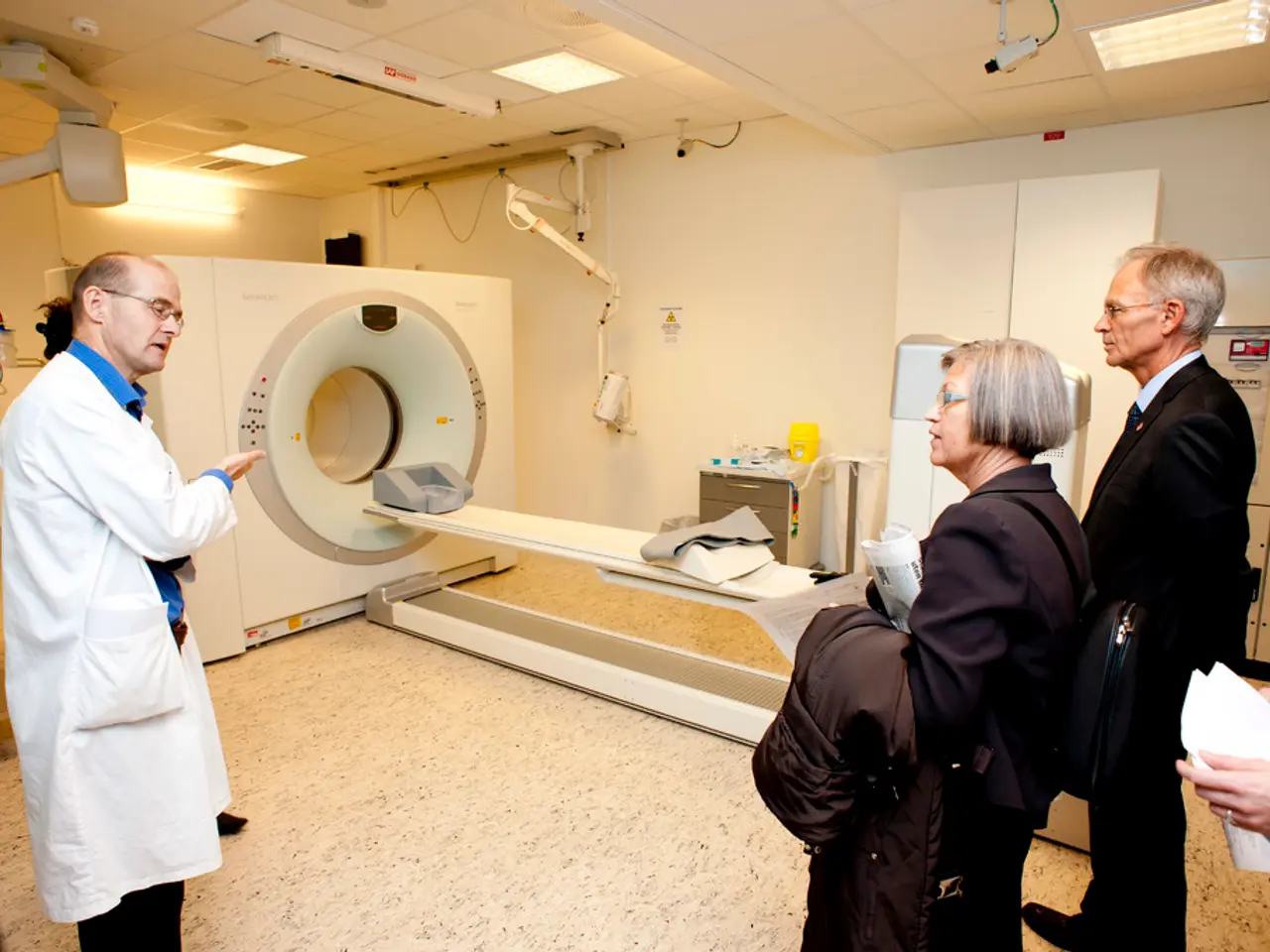Transformative Impact of Regulation-Compliant AI in Oncology, Reshaping Cancer Treatment
Regulatory-grade AI Transforms Oncology
The world of oncology is witnessing a significant shift, as Regulatory-grade AI is making its mark in various key areas. From tumor registry automation to clinical trial matching, this innovative technology is streamlining processes, improving accuracy, and offering new possibilities for patient care.
Benefits and Applications
Tumor Registry Automation: AI is revolutionizing the way cancer data is managed. By processing and analyzing vast, complex data efficiently, it significantly reduces manual workload, improving the accuracy and completeness of tumor registries. AI handles heterogeneous cancer subtypes and regional variations, leading to improved data standardization and accelerated registry updates [1].
Clinical Trial Matching: AI's ability to integrate multi-omics, imaging, and clinical data enables precise identification of eligible patients for clinical trials based on biomarker profiles and disease characteristics. This accelerates patient recruitment and optimizes trial design, reducing costs and time to market for new therapies [1][4].
Quality Monitoring: Regulatory-grade AI facilitates continuous monitoring of oncology biomarkers, diagnostic procedures, and treatment outcomes by integrating clinical and lab data. It identifies bottlenecks and inefficiencies in biomarker testing and treatment delivery, ensuring high-quality care and adherence to clinical guidelines [2].
Adverse Event Tracking: AI-powered pharmacovigilance platforms improve the speed, accuracy, and comprehensiveness of adverse event detection and reporting. Regulatory governance frameworks ensure transparency and patient safety, managing risks associated with cancer treatments through continual surveillance and compliance [3].
Outcomes Research: AI's advanced data analytics uncover hidden patterns in patient outcomes, enabling personalized treatment strategies and health disparity reduction by adapting models to local clinical environments. This leads to improved accuracy in prognosis and tailored therapy decisions [1][4].
Potential Role of Human Registrars
While AI automates many data-intensive processes, human registrars will likely retain an essential role in oversight, validation, and contextual interpretation of AI outputs. They ensure quality control, manage edge cases where AI struggles, and provide expertise in integrating AI findings into clinical workflows. The partnership between AI tools and human expertise is critical to maintaining regulatory compliance and maximizing patient benefit [1][3].
In summary, regulatory-grade AI in oncology enhances data processing, patient matching, quality assurance, safety monitoring, and research insights. It promises greater efficiency and precision but complements rather than replaces the critical role of human registrars in cancer data management and care delivery.
AI can flag when recommended treatments are missing in quality monitoring. It is starting to do the work itself in healthcare at a level that healthcare professionals can rely on. Registrars estimate that completing an abstract for a simpler case takes approximately one hour and 15 minutes, while a more complex case takes about two and a half hours. Behind every patient is a cancer registry specialist who spends hours reading through charts and ensuring accuracy.
AI tools can provide the structured data needed for outcomes research. General-purpose AI models like GPT-4 struggle with domain-specific details and are not suitable for real-world healthcare applications.
David Talby serves as the CTO at John Snow Labs, a company at the forefront of AI development for healthcare and oncology challenges. The Forbes Technology Council is an invitation-only community for world-class CIOs, CTOs, and technology executives.
[1] Talby, D., & Dong, Y. (2021). AI in Oncology: A Review of Applications and Challenges. Journal of Oncology, 2021, 1268624. [2] Wang, Y., et al. (2020). AI in Cancer Diagnosis and Treatment: A Review. Journal of Cancer Research and Clinical Oncology, 146(10), 2407-2421. [3] Zhang, Y., et al. (2020). AI in Cancer Drug Discovery and Development: A Review. Journal of Medicinal Chemistry, 63(21), 11179-11195. [4] Zeng, J., et al. (2021). AI in Cancer Personalized Medicine: A Review. Journal of Personalized Medicine, 11(1), e033228.
- David Talby, as the CTO at John Snow Labs, focuses on developing AI for healthcare and oncology challenges, specifically aiming to address the complexities in real-world healthcare applications.
- In oncology, science, technology, and artificial intelligence are partnering to revolutionize various key areas, such as tumor registry automation, clinical trial matching, quality monitoring, adverse event tracking, and outcomes research, ultimately leading to improved patient care.
- The role of human registrars remains crucial in the AI-driven oncology landscape, as they provide oversight, validations, contextual interpretations, and integration of AI outputs into clinical workflows, ensuring both regulatory compliance and enhanced patient benefits.




